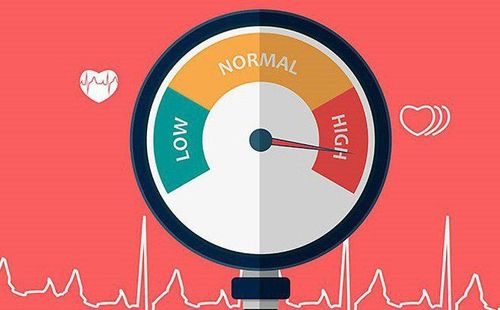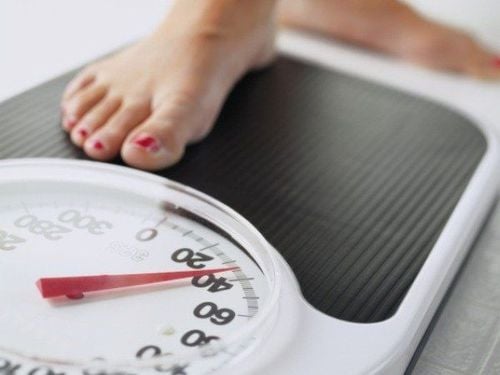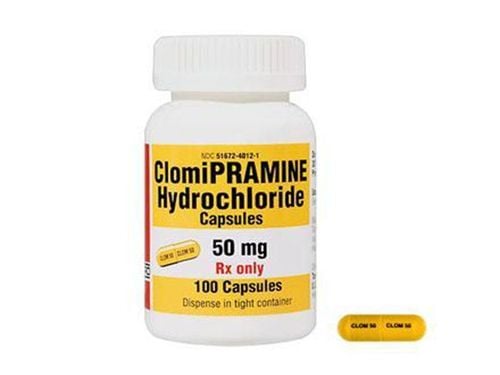This is an automatically translated article.
The article is professionally consulted by Master, Doctor Cao Thanh Tam - Cardiologist - Cardiovascular Center - Vinmec Central Park International General Hospital.Physical activity always brings great benefits to people's health and longevity, helps prevent many diseases and improves quality of life. In particular, for people with heart disease, regular exercise is good for the cardiovascular system and can significantly reduce the risk of dying from coronary heart disease.
1. What is physical activity?
Physical activity is any activity you can do to improve or maintain your overall fitness and health. Physical activities include:Daily activities: Such as walking, cycling to work or school, doing housework, gardening, or doing any active or manual work that you can do as part of your job. Active Recreation: Include activities such as dancing, playing with children, walking or biking for recreation. Sports: including exercises at home, at the gym or an exercise class, swimming activities and competitive sports such as football, rugby or tennis, etc.
2. Benefits of physical activity for people with heart disease

Physical activity is good for health, so you should try to practice at least 150 minutes/week. Besides, any form of physical activity such as doing housework, walking, jogging or swimming is beneficial for the cardiovascular system. In addition to supporting and improving heart health, regular exercise has many other great health benefits, including preventing high blood pressure, losing weight, reducing stress,...
Many studies also show that an increase in physical activity and cardiopulmonary fitness significantly reduces the risk of dying from coronary heart disease. When we exercise regularly, the heart will beat slower than when we have to exercise vigorously. What's more, a person who exercises diligently will have stronger, more supple muscles and less fatigue than someone who doesn't exercise.
In addition, exercise also helps you limit the accumulation of body fat - one of the main causes of increased risk of cardiovascular disease, and at the same time, coronary arteries also dilate more easily, helping the heart works more efficiently.
A lot of people have imposed the idea that people with heart disease should have absolute bed rest and avoid a lot of exercise. However, the reality shows that patients with heart disease who regularly exercise will have more psychological comfort and significantly improve their quality of life. They experience fewer symptoms, go to the hospital, and are more likely to return to work. It is clear that reasonable physical activity has contributed a lot of benefits to the recovery of cardiovascular function of patients.
Some other benefits of regular exercise for people with heart disease, including:
Increases hypoxia tolerance Reducing myocardial oxygen demand Clearing inefficient vessels In the heart muscle Helps arteries soften, increase elasticity and suppleness Helps veins bring blood to the heart faster and more regularly Push more blood to the brain, kidneys, lungs, liver and muscles,...
3. The risks of physical activity in people with heart disease

When people with heart disease practice static sports that involve mainly supporting activities, contracting muscles, not moving the extremities much, or maintaining a posture (such as weightlifting) can cause blood pressure to rise suddenly, which is life-threatening, especially in people with high blood pressure, congenital heart disease or coronary artery disease.
Besides, people with heart disease, if they exercise heavily right from the beginning of exercise or exercise too much for the heart, it can lead to overload of the heart and put a burden on the heart. This can lead to a heart attack in people with coronary artery disease or worsen heart failure in people with heart failure.
One of the factors that can also affect heart health is the weather during exercise. Physical activity when the weather is high humidity makes the body tired quickly. Exercising in too cold or too hot weather also adversely affects the circulatory system, causing chest pain, shortness of breath, fluctuating and unstable blood pressure and a prerequisite for the development of angina or pectoris. heart attack .
Obviously, when doing any physical exercise, we need to exert more or less effort, so a number of cardiovascular events are at risk such as arrhythmias and arrhythmias. chest pain. However, these risks are all extremely low, only approximately one occurrence if you train for 400,000-800.000 hours, equivalent to 400-800 thousand people training (if one person exercises on average for 1 hour). , only 1 person is at risk for these risks.
The above ratio shows how safe it is to exercise even if you have cardiovascular disease. What's more, the risk of cardiovascular complications was even lower in people who exercised regularly. Overall, up to 90% of cardiovascular events occur during rest, not during exercise.
Thus, exercise for people with heart disease can be considered safe. However, you should still pay attention to unusual symptoms other than usual, which may arise during or after exercise. These abnormalities include chest pain; heaviness or pressure, pressure in the chest; pain spreading to the neck, chin, shoulder, or down the arm; dizziness, lightheadedness, shortness of breath, lightheadedness, a feeling of being overwhelmed or unusually nervous. If you find any problems appear, you should go to a cardiologist to be examined and advised on an appropriate exercise regimen.
4. How should people with heart disease exercise?

People who are in a weak state when exercising should follow the form of training for a few minutes and then take a break with the exercise time or even double the exercise time, continue to repeat the same for a total time of about 30 minutes for one workout. You should remember that doing sports does not necessarily mean doing a lot of exercise, doing your best to be good, but simply you just need to practice regularly, systematically and in accordance with your health status.
Here are some suitable physical activities for people with heart disease, including:
Walking: to best improve heart health, you should walk a bit briskly, take a brisk walk to get your pulse fast. up, then slowly go slowly. If you notice a little sweating and a little shortness of breath, that's a good sign. Every day you should spend about 30-60 minutes walking. Jogging: This is a very good exercise for people with heart disease. You should start running slowly and then speed up gradually, but do not overdo it. If you feel tired, slow down before stopping completely. You should only run about 3-4 times per week. Swimming: you should swim leisurely, gently, do not swim too fast or dive for a long time because holding your breath is very dangerous for the heart. Table tennis, badminton: you should play gently, moderately, do not try to play for more than an hour. Qigong, yoga: helps to relax the mind, stay optimistic and very good for the cardiovascular system. Currently, cardiovascular disease prevention is an active way to protect health that anyone can do through regular health checkups. With the desire to help customers protect their cardiovascular health in general and detect early signs of myocardial infarction and stroke, Vinmec International General Hospital has been providing a Cardiovascular Screening Package - Medical Examination. Basic cardiology. The examination package helps to detect cardiovascular problems at the earliest through tests and modern imaging methods. The package is for all ages, genders and is especially essential for people with risk factors for cardiovascular disease.
Master - Doctor Cao Thanh Tam has many years of experience in diagnosing and treating cardiovascular diseases; Performing transthoracic echocardiography in the field of internal medicine and interventional Cardiology; Perform other non-invasive functional investigations in the diagnosis and treatment of cardiovascular diseases. Currently working as a cardiologist at Vinmec Central Park International General Hospital since November 2015.
Please dial HOTLINE for more information or register for an appointment HERE. Download MyVinmec app to make appointments faster and to manage your bookings easily.
Reference source: patient.info, Vietnam Cardiology Association














